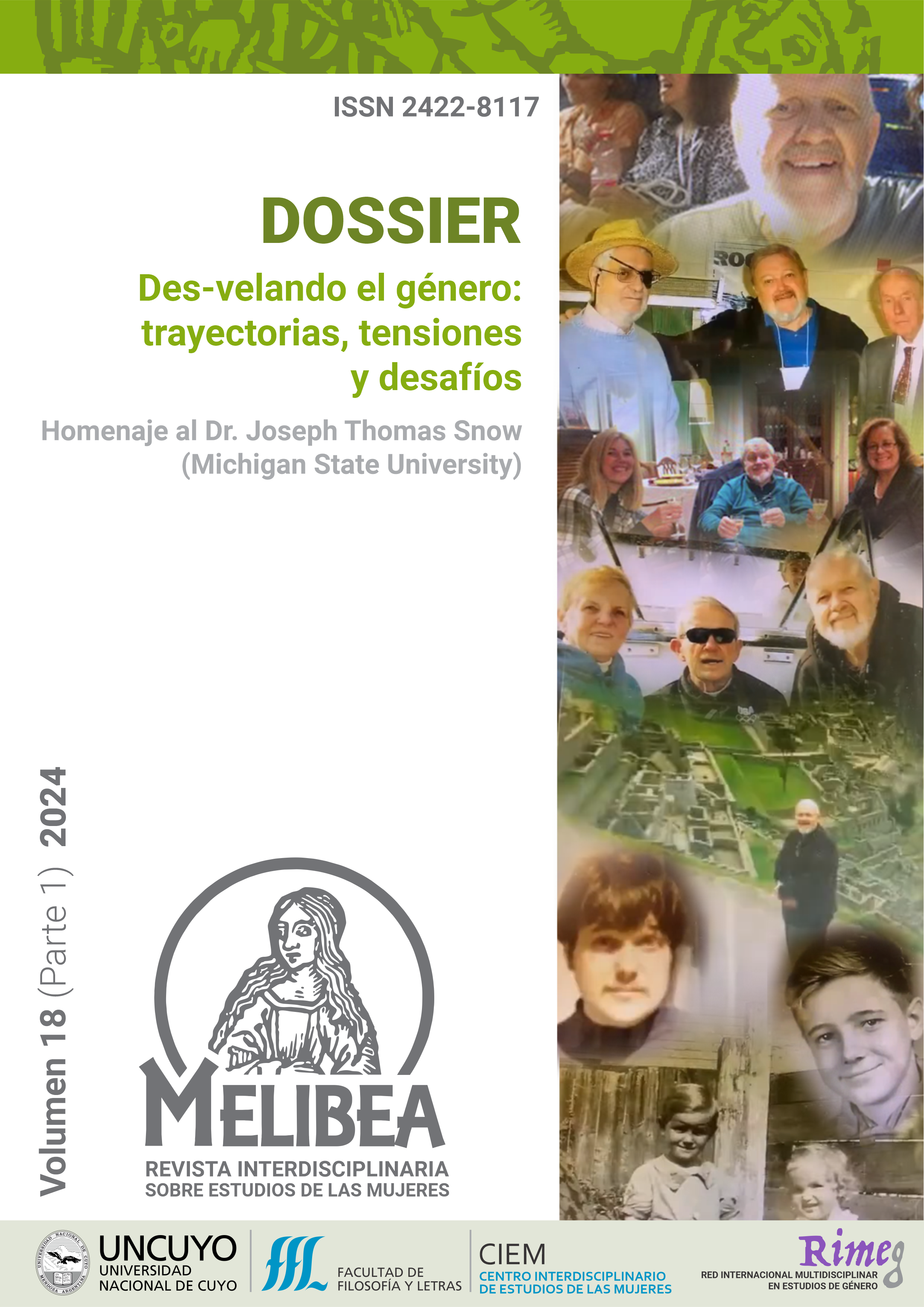How do Gender Studies Contribute to the Field of Literary Studies?
Keywords:
Feminism, Epistemology, WritingAbstract
I give here a possible answer, without pretending to be exhaustive, based on my own academic experience with feminist literary studies, since my student days in the 1980s. To this end, I trace a journey through the most outstanding milestones of feminist literary studies. The search for ways of reading literature that took into account women's experiences and perspectives arose from the irritation of women professors and researchers like myself, who could not recognize themselves in the classical representations of what a woman is, wants and knows, because such images felt alien, even chimerical. That dissonance between one's own experience and what hegemonic discourses have historically presented as the truth about women was the engine that drove me –and every feminist in the world– to seek the theoretical-methodological lenses necessary to reveal and resist the patriarchal bias that transforms sexual difference into political inequality.
References
Agustini, Delmira. (1913). Los cálices vacíos. O. M. Bertani.
Cixous, Hélène. (2004). La risa de la medusa. Deseo de escritura. Reverso.
Colombi, Beatriz. (Ed.). (1999). Prológo. En Delmira Agustini, Los cálices vacíos. Simurg. https://www.cervantesvirtual.com/obra-visor/prologo-a-los-calices-vacios-de-delmira-agustini/html/4daefea3-574a-41b4-a107-e6ecb9bf105c_4.html
Cortázar, Julio. (1972). Rayuela. Sudamericana.
Cróquer Pedrón, Eleonora. (2009). Escrito con rouge. Delmira Agustini (1886-1914). Artefacto cultural. Beatriz Viterbo.
Darío, Rubén. (1908). Prosas Profanas y otros poemas. Librería de la Viuda de C. Bouret.
Escaja, Tina. (1993). La lengua en la rosa: Dialéctica del deseo en la obra de Delmira Agustini [Tesis doctoral]. University of Pennsylvania. https://www.proquest.com/openview/841d126bfdf4a9b946e207847800b394/1?pq-origsite=gscholar&cbl=18750&diss=y
Fabbri, Luciano. (2021). La masculinidad incomodada. UNR y Homo Sapiens.
Ferré, Rosario. (1985). La cocina de la escritura. En Patricia Elena González y Eliana Ortega (Eds.), La sartén por el mango: Encuentro de escritoras latinoamericanas (pp. 137-154). Huracán.
Gorodischer, Angélica. (1984). Trafalgar. Ediciones del Peregrino.
Gorodischer, Angélica. (1992). Señoras. En Ursula K. Le Guin y Angélica Gorodischer, Escritoras y escritura (pp. 43-50). Feminaria Editora.
Molloy, Sylvia. (1984). Dos lecturas del cisne: Rubén Darío y Delmira Agustini. En Patricia Elena González y Eliana Ortega (Eds.), La sartén por el mango: Encuentro de escritoras latinoamericanas (pp. 57-69). Huracán.
Zanón, Carlos. (27 de septiembre de 2019). Imprime la leyenda. El País. https://elpais.com/cultura/2019/09/27/babelia/1569604930_117236.html
Downloads
Published
How to Cite
Issue
Section
License

This work is licensed under a Creative Commons Attribution-NonCommercial 4.0 International License.
Esta obra está bajo una Licencia Creative Commons Atribución-NoComercial 4.0 Internacional.
Los/as autores/as que publican en esta revista están de acuerdo con los siguientes términos:
1. Los/as autores conservan los derechos de autor y garantizan a la revista el derecho de ser la primera publicaci´´ón del trabajo bajo una licencia Creative Commons Atribución-NoComercial 4.0 Internacional. Por esto pueden compartir el trabajo con la referencia explícita de la publicación original en esta revista.
2. Revista Melibea permite y anima a los autores a difundir la publicación realizada electrónicamente, a través de su enlace y/o de la versión postprint del archivo descargado de forma independiente.






